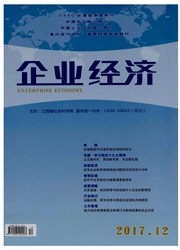

 中文摘要:
中文摘要:
本文基于问卷调查数据,研究了我国制造业上市公司并购后资源整合及其对并购价值创造的影响。结果表明:并购后资源整合的方向主要由主并公司向被并购公司转移管理能力、人力资源、财务资源和市场资源,被并购公司向主并公司转移实物资源和技术资源。其中,主并公司向被并购公司转移管理能力以及被并购公司向主并公司转移技术资源、财务资源,都有利于并购价值创造,而被并购公司向主并公司转移管理能力则不利于并购价值创造。因此,公司在进行并购决策时,应选择实物资源相对便宜以及技术资源丰富的目标企业作为并购对象,并购后资源整合方向应依据并购双方资源状况来决定。
 英文摘要:
英文摘要:
Based on the questionnaire survey data, this paper studies the resource integration of China's manufacturing listed compa- nies after M&A and its impact on the creation of M&A value. The results show that, for the resource integration after merger and acquisition, the merging company will mainly transfer management resources, human resources, financial resources and market resources to the merged company and the merged company will transfer physical resources and technical resources to merging company. The transfer of management capabilities to the merged company and the transfer of technical resources, fi- nancial resources to the merging company are benefit to the value creation of M&A, and the transfer of management capacities to the merging company is not conducive to the value creation of M&A. Therefore, the bidding company should choose the target enterprises with relatively cheap physical resources and technical resources as merger targets, and the direction of re- source integration after M&A should be determined based on the resource status of both parties.
 同期刊论文项目
同期刊论文项目
 同项目期刊论文
同项目期刊论文
 期刊信息
期刊信息
